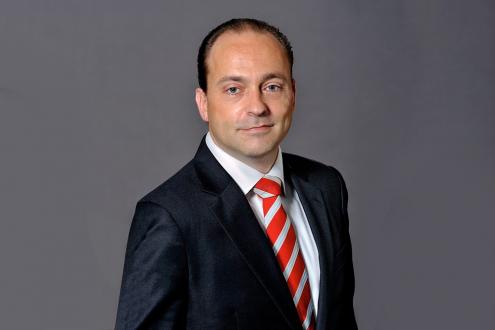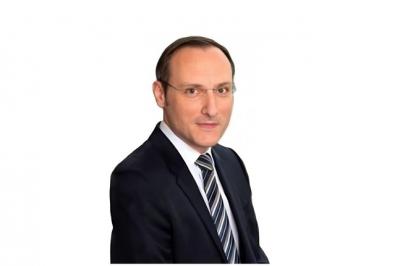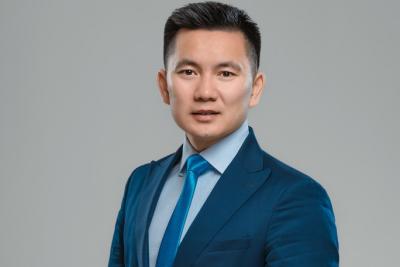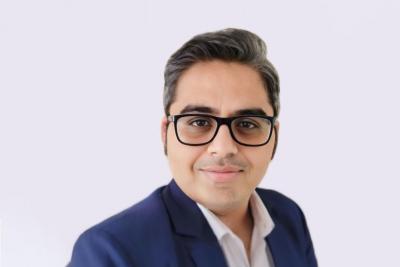Indosuez Wealth Management and its Commitment to the Rise and Rise of ESG
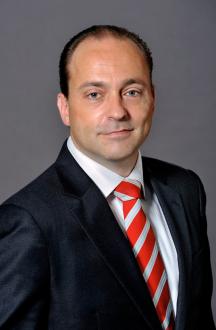
Arjan de Boer of Indosuez Wealth Management
Oct 10, 2021
Arjan de Boer is Deputy Chief Executive for Hong Kong Branch and Head of Markets, Investments and Structuring, Asia for Indosuez Wealth Management, a role he first took on back in early 2017. A lover of Formula One racing and an owner of a classic Italian thoroughbred, he does however take a far more measured approach to private banking. Arjan has been a stalwart contributor to our Hubbis thought leadership events over many years, and we have relied on him for his extensive knowledge of the Asian wealth management scene and his valuable insights into the positioning needed in order to protect business models and to help propel them into the future. He sat as one of our panel of experts at our Digital Dialogue event on September 9 titled: ‘ESG – Embracing the Sustainability Revolution’. He explained why Indosuez and parent firm Credit Agricole, as well as sister firm Amundi, the leading European asset manager, have long been champions of ESG, and he told delegates why Asia’s investors are indeed increasing adopting these principles and guidelines to hone and refine their portfolios. We have summarised his valuable insights in this briefing.
Arjan de Boer has been in his role heading markets and investments at Indosuez Wealth Management since early 2017, and during that time has been an ardent proponent of the theme of sustainability in investments. He has built his business and teams around four pillars – investment solutions, structuring & financing, capital markets and asset management. And an overriding and increasingly prominent theme for he and his team has been the delivery of ESG-driven investment principles and associated education internally and externally.
Sustainability – a key driver for growth
In line with the Indosuez parent company, the Credit Agricole group, the bank has a remarkably strong commitment towards sustainable finance as believes that it can be an essential lever to create a better and greener world. Green finance is a key growth driver for the group, and all group entities are committed to a common climate strategy in line with the Paris Agreement.
Addressing the question as to whether this is more fad than substance, Arjan told delegates it is a bit of both at this time. “I can see there has been some scepticism about ESG, especially actually in Asia,” he said. “However, since the pandemic hit, people have been taking this more seriously. Advances in the world of finance start at the institutional levels and then trickles down to private banking and ultimately into the retail space. We have actually been working on ESG for many years, and today report ESG scores in client portfolios, in fact we have done that since 2015.”
Substance and durability
Arjan explained that really the first hurdle in disseminating the vision of ESG and sustainability was getting the RMs on board. “Our experience has been that younger people are much easier to convince than the older generation, whether it's our relationship managers or whether it's our clients,” he reported. “And today there is wider interest, wider media coverage and wider adoption. Whereas a few years ago some people might not have known what ESG even stood for, today we are well past that, and certainly our more senior clients are now becoming really interested.”
He said that there is a growing body of evidence that securities with high ESG credentials achieve better returns. “We have models and data that show that has been the case since 2014, where we see that, predominantly from evidence in North America and Europe, returns are enhanced,” he said. “Today, we maintain an active education series on this, first for our relationship managers, then directly and indirectly for clients.”
And together with Amundi, French Indosuez Wealth Management’s sister company and the leading European asset manager, they have joined forces to create their ‘ESG Academy’. “We work with bankers on ESG scorecards that they can go through portfolio with clients, and we are really boosting our internal education and training,” he explained. “There is much more to do out here in Asia, we are still behind Europe, but we are catching up.”
A dynamic issue
As to education, Arjan explained that this is ongoing as ESG is not static, it is dynamic. “Moreover, there is new regulation coming in regularly,” he reported, “so, for example Singapore is about to set out new disclosure standards for ESG funds, and we will see more such moves elsewhere.”
He noted that thus far, there are not yet any generally accepted ESG ratings or metrics, as there are widely accepted accounting practices. “The ESG scores that we use with the support of Amundi in our clients’ statements are actually based on the ratings and assessments of various different external parties,” he reported. “I do agree this is rather complex, but we are all moving in the right direction, and there is increasing alignment.”
Across the investment world
He added that ESG spans all asset classes and products and services and is here to stay. “For example, we now trade so-called green structured products that have very specific characteristics, and that we educate the RMs about, so they can clearly inform their clients. In short, we need continuous education from here onwards, we are all committed to that in our group and also working with external platforms, such as Hubbis.”
Arjan countered a view on the panel that ESG somewhere in the near future will become more of a hygiene factor.
“I don't think so at all,” he said. “In fact, in terms of regulation, we're only at the very beginning, with some progress taking place in Europe, some but less in Asia and so forth. In short, we are seeing greater interest, but there is much progress needed. Even the six of us on this panel today, we are in reality really only building our understanding and knowledge about this, and I will admit we're not there yet. This means we are nearer the start; the regulators are at the start and governments are at the start that means our clients still have to go through this entire journey. In short, this is going to be a topic for many years to come before this is becoming a hygiene factor, in my view.”
He added that for the larger organisations, it is affordable to have sustainability officers and ESG specialists, while for smaller operators and companies, it is not economically viable.
Talent will drive growth, and vice versa
“But what is for sure is that there will be a whole class of new sustainability specialists coming on stream in the next decade or two, creating a whole new job category in itself. And just like after the global financial crisis, there were huge costs in terms of propping up your compliance departments, this is clearly another area where financial institutions and banks will have to invest.”
Relevance and suitability
He pointed, for example, to Amundi, where they now employ the team of 40 dedicated ESG analysts work with both proprietary and externally sourced data. “In the group, our strong ESG expertise and commitment spreads from advisory to asset management and capital markets, and it is important to educate our teams and ultimately clients, as I said, through their ESG Academy. For clients, it is all about building resilient portfolios that can also comply with their personal aspirations. And at Indosuez Wealth Management, this is very much part of our culture, and we believe it will benefit us, our teams and our clients for many years to come, and even more visibly in the future.”

Head of Markets, Investments & Structuring, Asia at Indosuez Wealth Management

More from Arjan de Boer, Indosuez Wealth Management
Latest Articles


